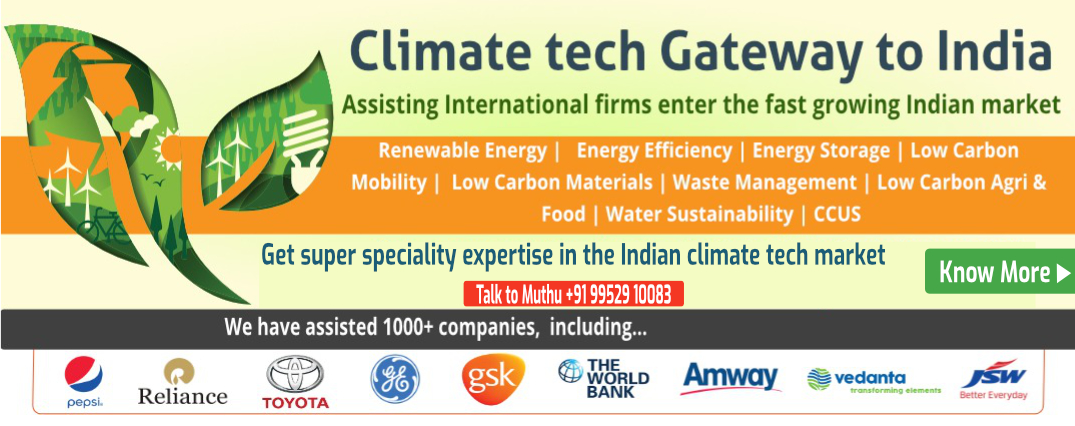This post is a part of Climate G2I Intelligence series from Energy Alternatives India (EAI), India’s leading climate-tech consulting firm.
G2I stands for Gateway 2 India, and provides comprehensive market intelligence and go-to market assistance for International firms entering the Indian climate-tech market. More about Climate G2I from here
The Indian electric vehicle (EV) market is witnessing a surge in interest from global players, and Japan’s Musashi Auto is the latest to join the bandwagon. The company has announced a Rs 70 crore investment in the first phase of its venture into the India’s EV space, marking a significant development for the industry. It has partnered with BNC Motors to establish an assembly line at their Bengaluru manufacturing facility.
This strategic move by Musashi Auto highlights the growing confidence of international companies in the immense potential of the Indian EV market. The Indian government’s FAME II subsidies program, which offers incentives for EV manufacturers and buyers, is a major driver of this interest.
The collaboration will enable the company to leverage BNC’s expertise in the Indian automotive market and quickly establish its presence in the EV segment. The initial phase of the investment will focus on manufacturing critical auto parts for electric vehicles. This includes components like motor housings, differential gear housings, and transmission parts. Musashi Auto plans to gradually expand its product portfolio and production capacity to meet the growing demand for EVs in India.
Net Zero by Narsi
Insights and interactions on climate action by Narasimhan Santhanam, Director - EAI
View full playlistThe Indian market for EV motors and transmission
The Indian EV market is poised for exponential growth in the coming years. The entry of major players like Musashi Auto is a testament to this potential.
Estimates vary, but the Indian EV motor and transmission market is expected to reach a value of: USD 1.82 billion by 2025, with a CAGR of 44.2% between 2022 and 2025 (Mordor Intelligence). While still nascent, the market is expanding rapidly, fueled by growing EV adoption and government initiatives. This growth is fueled by surging EV adoption, government incentives like FAME-II and PLI schemes, and a push for local production.
Major players like Musashi Auto, Bosch, and Amara Raja are already onboard, along with partnerships like Valeo-Ashok Leyland to develop and manufacture electric motors and transmissions for electric buses and trucks and BorgWarner’s India expansion. The government is stepping on the gas with relaxed regulations and a charging infrastructure push.
However, there are speed bumps ahead: limited raw materials, high battery costs, and patchy charging infrastructure. Still, recent innovations like Tata’s high-performance motor boasting 265 kW and 400 Nm torque, and IIT Delhi’s cost-effective indigenous motor for two-wheelers, show we’re shifting gears.
This post is a part of Climate G2I Intelligence series from Energy Alternatives India (EAI), India’s leading climate-tech consulting firm.
G2I stands for Gateway 2 India, and provides comprehensive market intelligence and go-to market assistance for International firms entering the Indian climate-tech market. More about Climate G2I from here






 Our specialty focus areas include
Our specialty focus areas include




